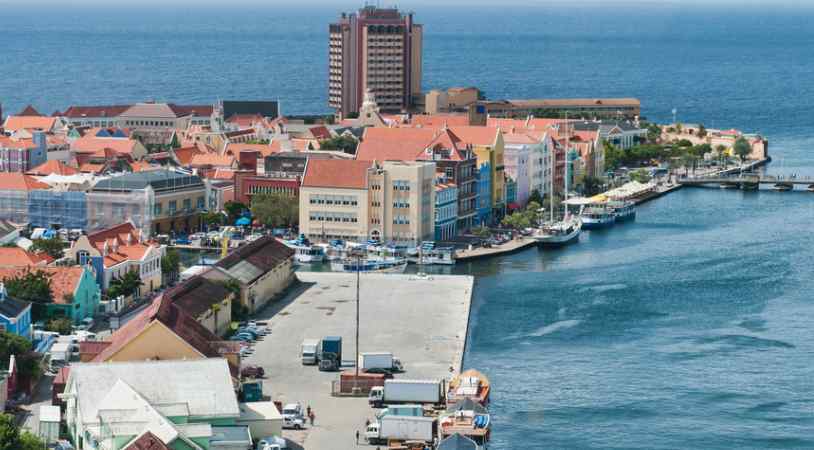The Rise and Fall of Offshore Companies in Curacao: A Look at the Past, Present, and Future
For decades, Curacao was a prominent player in the world of international finance, largely due to its thriving offshore company sector. The island nation, strategically located in the Southern Caribbean, offered a unique blend of tax advantages, political stability, and a well-developed legal framework that attracted businesses from around the globe seeking to optimize their tax liabilities. This article delves into the history of offshore companies in Curacao, exploring their rise to prominence, the factors that contributed to their decline, and the current landscape.
The Golden Age: The Rise of Offshore Companies in Curacao
The allure of Curacao as a haven for offshore companies began to solidify in the mid-20th century. Key factors fueled this growth:
- Favorable Tax Regime: Curacao offered attractive tax incentives, including low or zero tax rates on certain types of income, making it a desirable location for holding companies, investment vehicles, and intellectual property management.
- Political Stability: Compared to other jurisdictions in the region, Curacao enjoyed a relatively stable political environment, providing a sense of security for international investors.
- Strong Legal Framework: The island boasted a robust legal system based on Dutch law, offering a familiar and reliable framework for businesses.
- Strategic Location: Its location in the Caribbean, coupled with good infrastructure and connectivity, made it an accessible and convenient hub for international transactions.
These advantages led to a surge in the establishment of offshore companies in Curacao, contributing significantly to the island’s economy. The sector provided employment opportunities, generated tax revenue, and attracted foreign investment.
The Tide Turns: Factors Contributing to the Decline
However, the landscape began to shift in the late 20th and early 21st centuries. Increased international scrutiny of tax havens and growing pressure from organizations like the OECD and the EU led to significant changes in the regulatory environment. Key factors contributing to the decline of offshore companies in Curacao include:
- Increased Transparency and Regulatory Pressure: International initiatives aimed at combating tax evasion and money laundering forced Curacao to adopt stricter regulations and increase transparency.
- Erosion of Tax Advantages: As global tax laws evolved, the tax advantages offered by Curacao diminished, making it less attractive compared to other jurisdictions.
- Blacklisting and Graylisting: Curacao faced periods of being blacklisted or graylisted by international organizations due to concerns about its tax practices, further damaging its reputation.
- Competition from Other Jurisdictions: Other jurisdictions emerged with more competitive offerings, attracting businesses that might have previously considered Curacao.
The Current Landscape: Adapting to a New Reality
Today, the offshore company sector in Curacao is significantly different from its heyday. The island has made efforts to comply with international standards and improve its regulatory framework. While the traditional offshore company model has declined, Curacao is actively seeking to reinvent itself as a reputable international financial centre.
This involves:
- Focusing on Substance: Encouraging companies to establish a genuine presence in Curacao, with real employees and operations, rather than simply being shell companies.
- Developing New Industries: Diversifying its economy and attracting businesses in sectors such as fintech, renewable energy, and tourism.
- Strengthening Regulatory Compliance: Continuously improving its regulatory framework to meet international standards and combat financial crime.
The Future of Curacao as a Financial Center
The future of Curacao as a financial center depends on its ability to adapt to the evolving global landscape. By focusing on transparency, substance, and diversification, Curacao can position itself as a reputable and sustainable international financial center, albeit one that looks very different from its past as a haven for traditional offshore companies. The key is to leverage its existing infrastructure, skilled workforce, and strategic location to attract legitimate
businesses that value compliance and long-term stability.
Challenges and Opportunities Ahead
The path forward for Curacao is not without its challenges. Rebuilding trust after years of being associated with tax haven practices requires sustained effort and demonstrable commitment to transparency. Competition from other jurisdictions, particularly those with more advanced technological infrastructure or more aggressive tax incentives, remains a significant hurdle. Furthermore, the global economic climate and geopolitical uncertainties can impact investor confidence and investment flows.
However, Curacao also possesses unique opportunities. Its bilingual workforce (Dutch and Papiamento, with widespread English proficiency) provides a competitive advantage in serving international clients. Its proximity to both North and South America makes it a strategically important hub for businesses operating in the region. The island’s natural beauty and vibrant culture can attract skilled professionals and entrepreneurs seeking a high quality of life.
Specific Areas of Focus for Future Growth
To capitalise on these opportunities, Curacao needs to focus on several key areas:
- Fintech Innovation: Embracing fintech innovation can attract companies developing cutting-edge financial technologies and services. Curacao can position itself as a testing ground for new technologies and a hub for fintech startups.
- Sustainable Finance: With growing global awareness of environmental and social issues, Curacao can attract businesses focused on sustainable finance and impact investing. The island’s commitment to renewable energy and sustainable tourism can further enhance its appeal.
- Specialized Financial Services: Focusing on niche areas of financial services, such as trust administration, fund management, and insurance, can differentiate Curacao from larger financial centers.
- Digital Infrastructure Development: Investing in robust digital infrastructure, including high-speed internet and secure data centers, is crucial for attracting and retaining businesses in the digital age.
- Education and Training: Developing a skilled workforce through education and training programs is essential for supporting the growth of the financial sector.
The era of traditional offshore companies in Curacao is largely over. However, this does not signify the end of Curacao as a financial center. Instead, it marks the beginning of a new chapter, one characterized by transparency, compliance, and a focus on sustainable economic development. By embracing innovation, strengthening its regulatory framework, and leveraging its unique advantages, Curacao can reinvent itself as a reputable and thriving international financial center, attracting businesses that value integrity and long-term partnerships. The journey will require sustained effort and a commitment to continuous improvement, but the potential rewards are significant: a more diversified and resilient economy, a stronger reputation, and a brighter future for the island nation. The key is to learn from the past, adapt to the present, and build a future based on sound principles and sustainable practices, ensuring that Curacao remains a relevant and respected player in the global financial landscape.
******
If you wish to register an Offshore Company in Curacao our team will be happy to help you there and provide you with more detailed information, you can contact us at [email protected]
Offshore Company in Curacao
Related pages:


